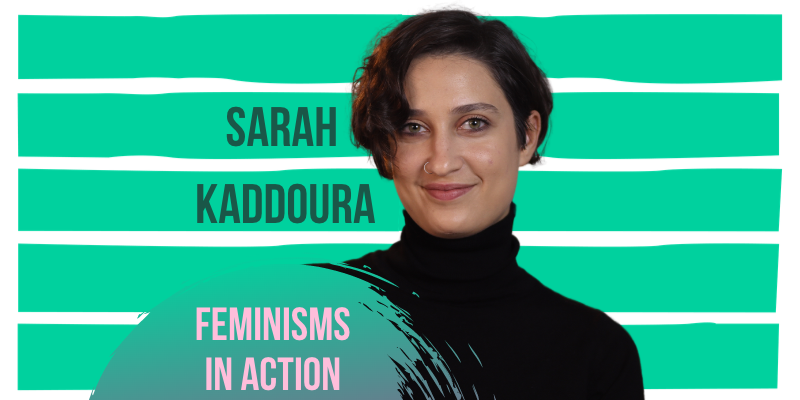In this very first English episode we are talking about the feminist journey of Sarah Kaddoura. She is a feminist organizer and activist and – very important – the founder of YouTube channel Haki Nasawi, which means feminist talk in Arabic. Sarah taught me a lot about her growing up in a conservative, mostly Muslim area in Lebanon and being a Palestinian refugee in the third generation. We talked about wearing the hijab and the struggle of taking it off after some years, about the relationship to her single mother and of course about her feminist uprising and the reactions to her YouTube channel.
To the episode:
Subscribe to Feminismus mit Vorsatz directly on Spotify, Apple Podcasts, or any other podcast or RSS app.
The podcast is not part of taz zahl ich. You can support Feminismus mit Vorsatz directly via PayPal, Steady membership, or direct bank transfer.
Feel free to follow me on social media or write me a love letter:
https://www.instagram.com/feminismusmitvorsatzpodcast/
feminismusmitvorsatz@gmail.com
Merch: Feminismus mit Vorsatz socks
https://iraklebt.de/products/feminismus-mit-vorsatz-socken-schwarz-weiss
Shownotes:
Sarah Kaddouras channel „Haki Nasawi“ (feminist talk in Arabic)
Youtube: https://www.youtube.com/@hakinasawi1184
Instagram: https://www.instagram.com/hakinasawi
Explanation of „Nakba“ on Wikipedia
Projects of the Risktaker Fellowship
Haki Nasawi: Islamic Feminism [on Youtube]
Fatema Mernissis work around Islamic Feminism
Fatema Mernissi: The forgotten Queens of Islam [on buch7]
1000Thanks to Sarah Kaddoura, the Heinrich-Böll-Foundation Beirut and the Adobe Podcast enhance filter!
Coverdesign: Svenja Limke
Titelmusik: Louis Schwadron
If you don’t know the podcast because you don’t speak German and this is the very first English episode – let me introduce myself: My name is Laura, I am from Berlin, I just turned 32 years and for about 4 years now I am documenting my very own journey into a feminist perspective in this podcast. The reason? I discovered feminisms in my mid-twenties and I think that’s quiet late for such a beautiful world-changing movement.
I wanted younger people to discover it earlier than me by giving them a hand and showing listeners around in the world of feminisms: Of which key moments do feminists think when they recap situations where they realized that people are not equal at all? Can feminists still wear nail polish? Can men be feminists? And what about having a family? Or does every respectable woman need to be a badass boss now?
I asked myself through these questions by interviewing other feminists and watching and reading and listening to everything, I could find and discovered that intersectional feminism suits best for which change I want to see in the world. In the last months I broadened my horizon by travelling to Lebanon and speaking to various activists there.



